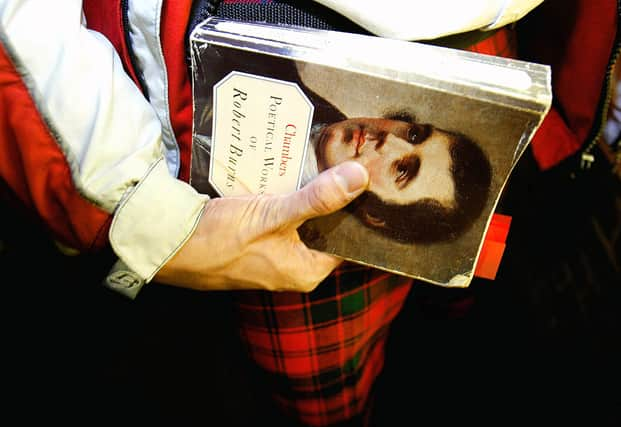University of Glasgow shine light on Robert Burns’ stubborn commitment to use of Scots


More than 250 years after his death, the University of Glasgow have revealed new insights to the nation’s poet, Robert Burn.
Academics at the University of Glasgow’s Centre for Robert Burns Studies participating in the ‘Editing Robert Burns for the 21st Century: Correspondence’ project, explored Burns’ significant letters “to reveal a man who knew his own mind – particularly when it came to writing in Scots.”
Advertisement
Hide AdAdvertisement
Hide AdThe team studied 800 letters written by the bard along with over 300 letters from friends and admirers of the poet, stitching together both sides of correspondence where possible.
Dr Rhona Brown, a Senior Lecturer in Scottish Literature at the University of Glasgow’s Centre for Robert Burns Studies, said: “In the correspondence, we get closer to Burns ‘the man’ than anywhere else: his letters reveal his triumphs, failures, anxieties, fears and joys.
“Our edition of the correspondence is also presenting, for the first time, letters written to Burns as well as by Burns, allowing us to reconstruct personal dialogues from throughout Burns’s life. Two of Burns’s relationships stand out –with Dr John Moore and Mrs Frances Dunlop – as we have both sides of the correspondence.
“What is fascinating, for example, is that early on, Moore advised Burns not to write in Scots. He cautioned Burns that he was limiting his audience and felt that London readers wouldn’t understand or connect with the Scots language. Dunlop advised him to avoid political subjects.
Advertisement
Hide AdAdvertisement
Hide Ad“But Burns is his own man and ignores the advice and carries on regardless. I think history has now shown that he was right.”
Dr Brown highlighted that the letters show Burns is a master in prose as well as poetry: “He is a genius in correspondence. In these texts, Burns offers an unofficial autobiography, in powerful and beautiful prose which is just as impressive and flowing as his poetry.”
The correspondence will be published as part of the new Collected Works of Robert Burns published by the Oxford University Press.
Comment Guidelines
National World encourages reader discussion on our stories. User feedback, insights and back-and-forth exchanges add a rich layer of context to reporting. Please review our Community Guidelines before commenting.